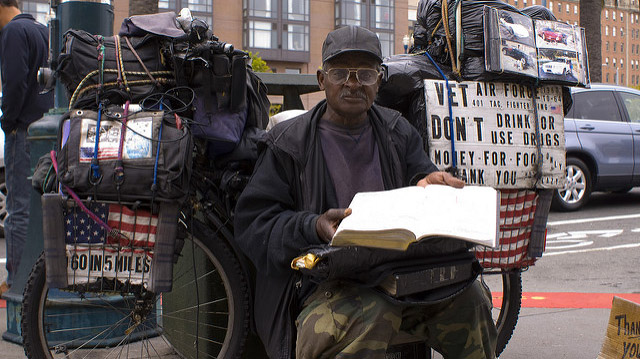
Source: KQED
The last count on homelessness in San Francisco in 2015 indicated that there were some 6,686 homeless people in the city. A more recent survey indicated that there might be closer to 10,000 homeless people living in shelters, hospitals and in the streets.
A number of underlying issues make shelters an inadequate solution to the city’s increasing number of homeless people, among them, mental illness, substance abuse, disability, and unemployment. In the most chronic cases of homelessness, the city can end up paying up to $80,000 per person in medical bills, policing, and jail; on the other hand, maintaining person in the most extreme cases by providing shelters and counseling can cost about $20,000, as reported by KQED.
Of those who are homeless, about 1300 are fending for themselves individually through family shelters, 1500 are in transitional housing or in hospitals, 3500 are considered unsheltered, and approximately 1700 of those are the most chronic cases, living in the streets.
Budget cuts to the state drastically impacted mental health programs, federal housing opportunities, and social programs available to those without housing. Funding, thus, is a huge factor in turning around the issue of homelessness in San Francisco, but also convincing homeless individuals to accept help in the form of shelters or counseling. The city has in the last years invested in recruiting counselors to convince individuals to accept help.
The issue of homelessness is chronic across America, as 30 percent of Americans are considered living at or below poverty, and many cannot afford food, let alone shelter. Currently San Francisco officials estimate that the city is 2500 housing units short to help people in the most chronic cases of homelessness, and to keep up with the swelling number of homeless individuals.
Learn more about media coverage on homelessness in San Francisco this week.
Read full story at: KQED
